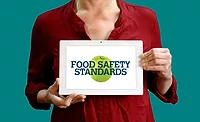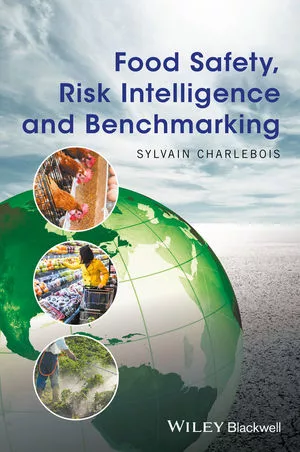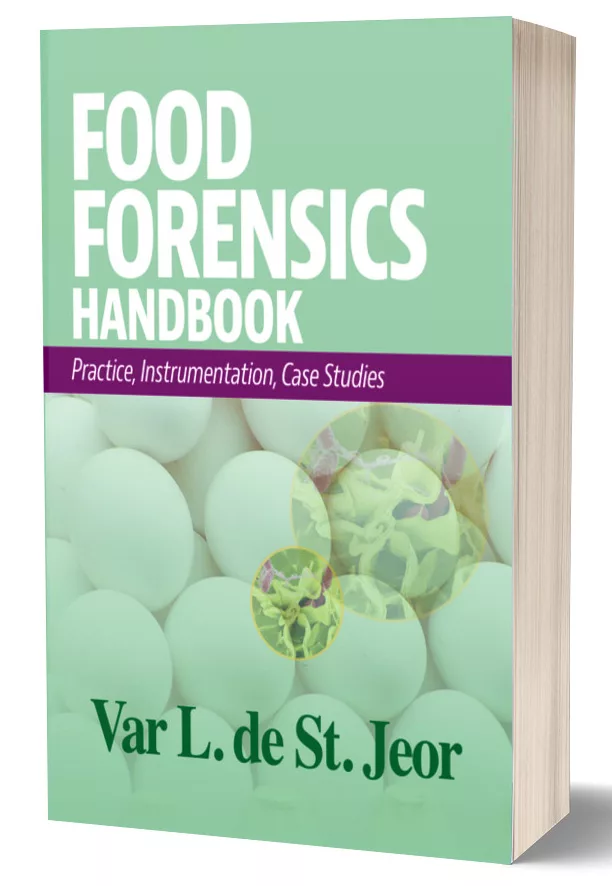Codex Alimentarius Seeks Data on Deoxyynivalenol, Pyrrolizidine Alkaloid
The international standards group Codex Alimentarius has established two new Electronic Working Groups (eWG) — one to address Deoxyynivalenol (DON) Maximum Limits and another to develop a Code of Practice to prevent and reduce contamination in food and feed by Pyrrolizidine Alkaloid (PA) — both of which have issued Calls for Data. Codex Alimentarius works within the United Nations Food and Agriculture Organization (FAO) and the World Health Organization (WHO) to develop international standards on food safety and fair trade.
Within the Codex's Committee on Contaminants in Foods (CCCF), Canada recently launched — and is seeking participants for — an eWG to address the Possible Extension of the Proposed DON Maximum Limits (MLs) to DON’s Acetylated Derivatives. Co-chaired by Japan, the working group plans to prepare a discussion paper and proposals for consideration by the CCCF at its next session in 2014. Codex Members and Observers interested in participating in this eWG should provide the following: participant’s name, participant’s official title or position, the name of the country or observer organization and email address to the U.S. Codex Office no later than August 20.
In addition, this eWG is asking all Codex members, whether or not they choose to participate in the eWG, to submit all available data on levels of DON and acetylated-DON derivatives. The group is also seeking information on the relevant analytical methods for DON and acetylated-DON derivatives in cereal grains. Data can be submitted by e-mail to bcs-bipc@hc-sc.gc.ca by September 27.
Also within the CCCF, The Netherlands has re-established an eWG to address Pyrrolizidine Alkaloid (PA) — specifically, to develop a Code of Practice for weed control and to prevent and reduce PA contamination in human food and animal feed. Codex members and observer organizations interested in joining this eWG should be registered by your national Codex Contact Point using the on-line registration system by August 31.
Additional updates from the 36th Commission session of Codex Alimentarius, which was held July 1-5, 2013, include the following:
- Under the Committee on Import & Export Certification & Inspection Systems (CCFICS), the United States invited Codex Members and Observers to participate in an eWG to consider revising the Codex Principles and Guidelines for the Exchange of Information in Food Safety Emergency Situations (CAC/GL 19-1995). This new work will be based on an original proposal from the International Dairy Federation and subsequent development of the proposal by the United States and others as presented to CCFICS in a Discussion Paper earlier this year. The Discussion Paper proposed that the revision would take into account the following aspects: a) the roles and responsibilities of the various parties/stakeholders involved in food safety emergency situations; b) the processes involved in responding to a food safety emergency situation(s); and, c) communications associated with food safety emergency situations. Countries and organizations interested in participating should provide the name, official title, and e-mail address of their representatives by September 15, to the U.S. Codex Contact Point.
- The Codex's Committee on Pesticide Residues (CCPR) invites Codex Members and Observers to participate in an eWG on the revision of the Classification for Food and Feed for (1) the development of new commodity groups; and (2) further elaboration of Table 2 on Selection and Examples of Representative Commodities of the Principles and Guidance for the Selection of Representative Commodities for the Extrapolation of Maximum Residue Limits for Pesticides for Commodity Groups in correspondence with the revision of the Classification in particular as per the vegetable groups. Nominations of Codex members and observers who wish to join the EWG should be endorsed by the Codex Contact Point of the member country or by the recognized international organization having granted observer status with the Codex Alimentarius Commission (see the website for the address of the CCPs/I[N]GOS). Please send your details to the focal point as indicated below with a copy to the Codex Secretariat not later than August 31.
- The Committee on Fresh Fruits & Vegetables invites Codex Members and Observers to participate in an eWG, led by Colombia, to discuss issues, especially on sizing by weight and count, associated with the proposed draft Codex Standard for Golden Passion Fruit. Nominations from Codex members and observers should come through the Codex Contact Point or international organizations having granted observer status with Codex, and those nominations should be sent by August 31 to bolarte@minsalud.gov.co.
- The Committee on North America and South West Pacific invites Codex Members and Observers to participate in an eWG, led by Tonga, to develop a draft regional Standard for fermented noni juice. Codex Members and Observers interested in participating in this work should provide the name, organization, contact details and email address of their representatives to Tonga Codex Contact point to and the chair of the eWG), no later than August 31.
- Codex Member States and Observer organizations are encouraged to submit validated analytical methods and standard operating procedures/protocols for veterinary drug residues and related contaminants (such as pesticides in foods) of relevance to Codex on the basis of relevant national laboratories and regulatory organizations. Please use official.mail@iaea.org to submit a method, with a clear indication in the subject line that the message is in relation to methods of analysis. The Joint FAO/IAEA Division, supported by the Codex Secretariat and members of the Codex Committee on Veterinary Drugs in Foods, publishes analytical methods for residues of veterinary drugs (and pesticides) through the Food Contaminant and Residue Information System (FCRIS) database hosted by the IAEA.
- The International Workshop on Feed Risk Assessment – Chemical Safety will take place in Utrecht, The Netherlands, on September 30 and October 1, 2013. The workshop is organized by the Government of The Netherlands, supported by the Food and Agriculture Organization of the United Nations (FAO). The workshop aims to explore the state of art in methods and tools for the risk assessment of chemicals in feed for farmed animals, with a focus on possible risks for the consumers of the animal products and for animal health and welfare. It includes scientific topics such as composition of feed, animal exposure assessment, modeling of transfer from feed to edible products, and human/consumer safety. The program will also explore the regulatory contexts of feed risk-assessment activities. Participants will deal with feed risk-assessment issues in interactive case studies and discuss possibilities for further development of the available knowledge and tools. The workshop is aimed at risk assessors and other technical experts dealing with feed, but is also suitable for feed risk managers and other parties involved in the feed sector. More information is available here.
- The FAO and WHO have finalized the technical paper entitled “State of the Art on the Initiatives and Activities Relevant to Risk Assessment and Risk Management of Nanotechnologies in the Food and Agriculture Sectors (2013)”. The document can be downloaded here, and the URL for other relevant nano-related information can be found here. Questions and comments should be sent to Masami.Takeuchi@fao.org (FAO) or kojimam@who.int (WHO).
- The updated version of the General Standard for Food Additives (GSFA) Online is now available on the Codex website. The General Standard for Food Additives (CODEX STAN 192-1995) has been uploaded here.
Looking for quick answers on food safety topics?
Try Ask FSM, our new smart AI search tool.
Ask FSM →








